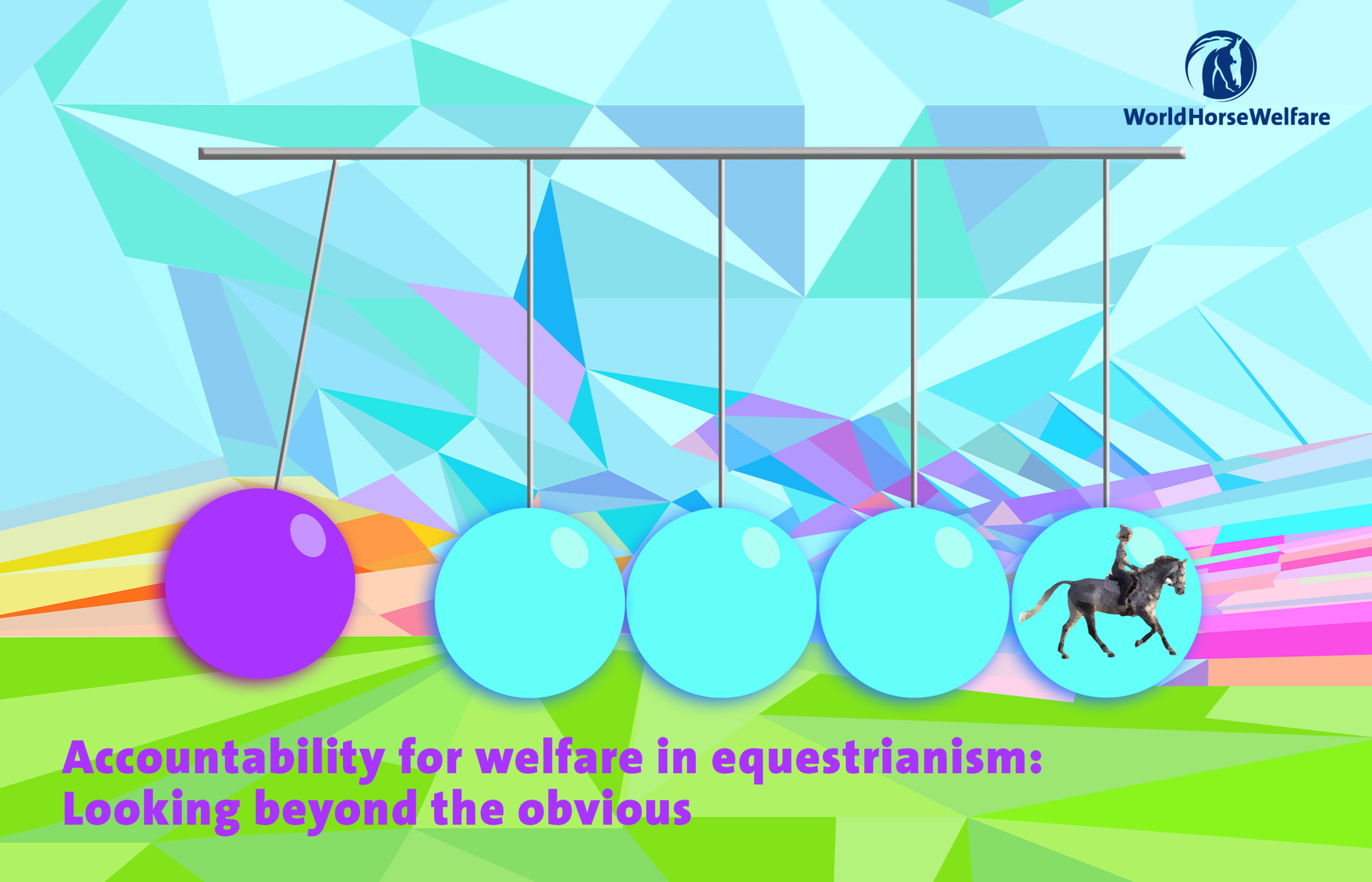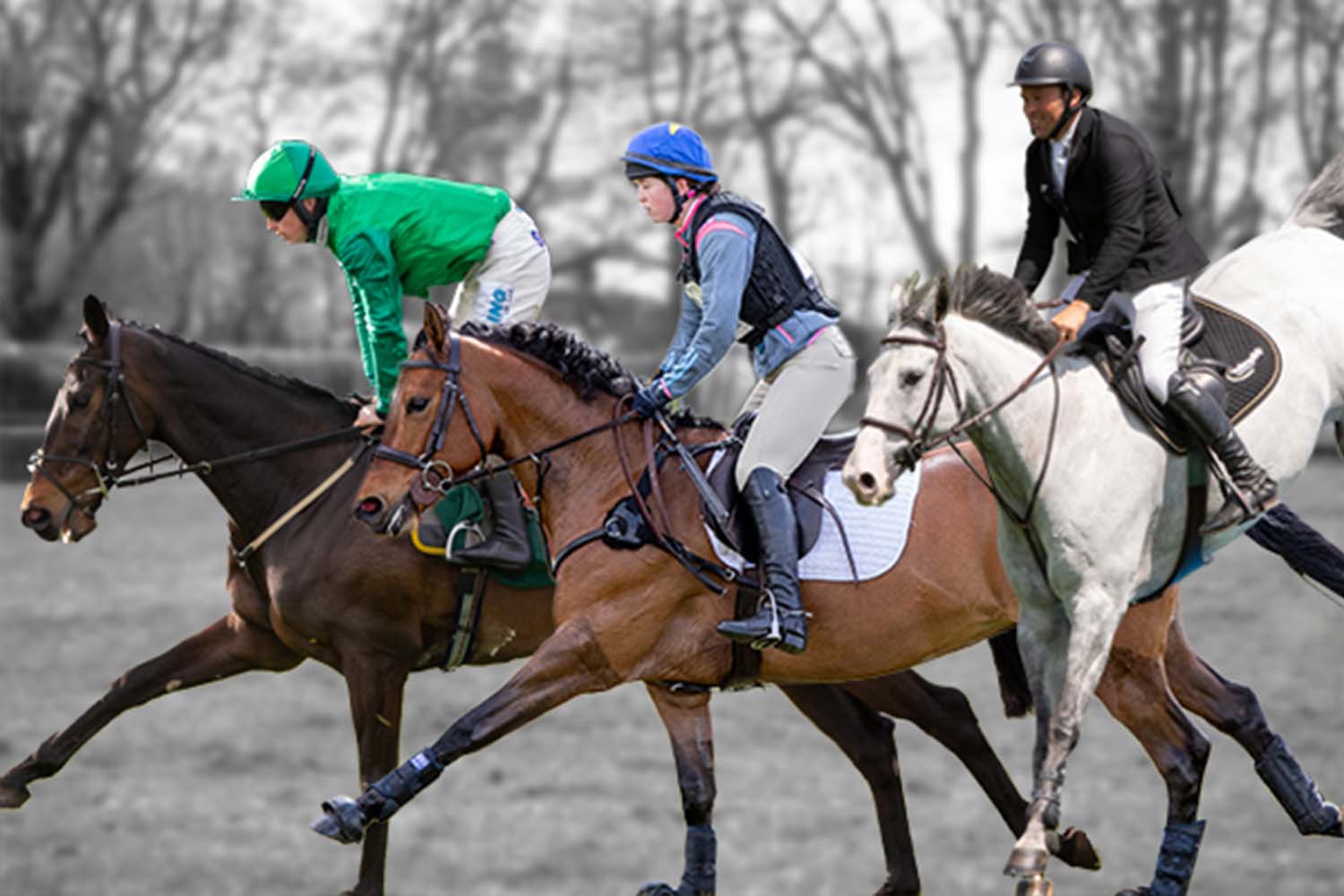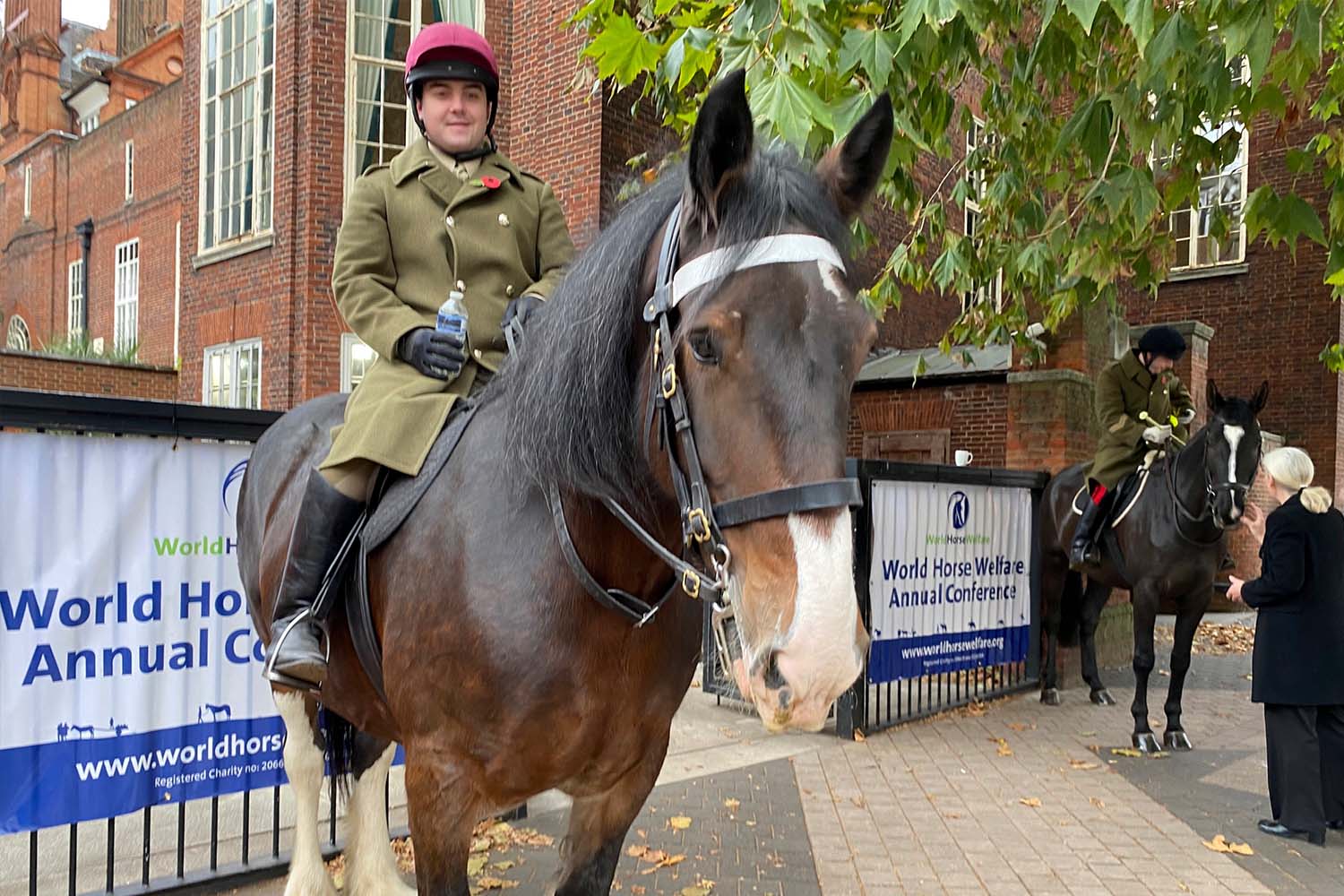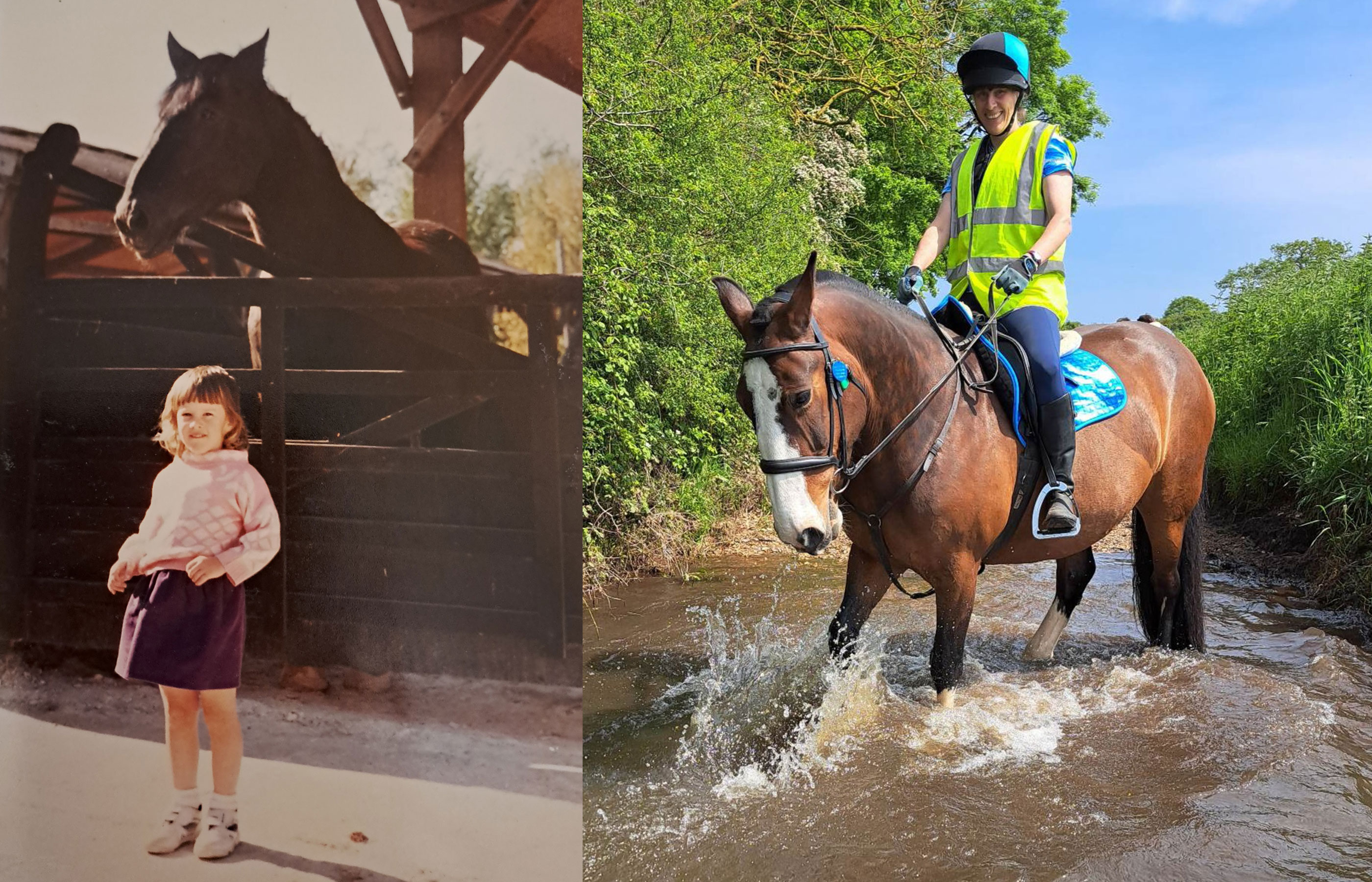Equestrian and racing leaders gather to consider what makes good people adopt poor welfare practices in horse sport
World Horse Welfare organised conference sees over 200 horse sport leaders discuss accountability for welfare.
Posted on 18/02/2025

In a virtual conference devised and hosted by our charity on 13 February in front of an audience of almost 200 horse sport leaders from across the globe, four expert speakers looked beyond the obvious to identify the underlying dynamics within horse sport that can drive good people towards poor welfare practices – and offered solutions on how horse sport can change this.
Compèred by former BBC sports commentator, David Eades, and sponsored by Agria Pet Insurance and supported by LeMieux, the theme of our second annual conference targeted at professionals in the racing and horse sport world was ‘Accountability for welfare in equestrianism: Looking beyond the obvious.’
The event framed recent headlines of poor practice by individuals in horse sport as a symptom of systemic pressures that can drive some of those involved to compromise the wellbeing of their equine participants.
In his opening address, World Horse Welfare Chief Executive Roly Owers said:
“It is easy to point the finger at one or two bad individuals – bad apples, we would like to think – in a world where most people love their horses and want to do the right thing.
“But it isn’t always as easy as deciding who are the bad people and who are the good people. These people have grown-up in a system. They have almost certainly normalised traditions, practices and attitudes that prevail in that system. So, are they solely to blame for their actions? Perhaps, when things go wrong for horses this is a symptom of a deeper issue.
“And as any good vet will tell you, if you are to be able to cure the symptoms you must find the cause.”
Providing the keynote was Chief Executive of British Gymnastics, Sarah Powell, whose experience of transforming a whole sport to fully support the welfare of its athletes proved deeply relevant to the challenges currently faced by equestrianism.
Referencing the process of reform within British Gymnastics, Sarah explained: “‘Reform’ is important as the word we use, because reform doesn’t talk about change alone, it’s about attitudes and beliefs, so if you are truly going to reform then you need to change people’s attitudes and beliefs.”
She went on to explain how all areas of the sport of gymnastics had to be considered in their response, from education to performance, culture and welfare.
“All of these were interconnected, none of them were looked at separately, all had to work, so our response was holistic and systemic in its approach. From the outset there was an absolute acceptance and ownership of the issues and not just an apology.”
Influential equestrian and racing speakers then shed light on the inner dynamics of their sports: Mette Uldahl, National Head Veterinarian for the FEI in Denmark and expert on animal welfare and ethics, Tim Downes, Chairman of the BHS Fellows Association and co-owner of Ingestre Stables and Meta Osborne, equine veterinarian, former Board Member of Horse Racing Ireland, Thoroughbred breeder and podcast host.
Mette Uldahl’s thought-provoking presentation, based around her research, challenged the audience to consider how people may unconsciously avoid accountability because emotions are more powerful than reasoning.
She raised the notion that the reward of winning drives us to want to succeed and how the redefining of success based around prioritising the mental and physical welfare of the horse could be a powerful tool to regulate human behaviour.
Mette said: “How the horse performs in a competition is what’s prioritised. Overall competition scores do not correlate with the horse’s welfare.
“The horse does not choose to enter competitions, and this is exactly why we all have a paramount obligation to govern horse welfare when we embark them in human activity, sport and entertainment. We all need a strong governance body to hold our hands because we are only humans.”
With many years’ experience working at all levels of the sport as a coach of both riders and other coaches, and as a dressage judge, Tim Downes raised his concerns with horse sport from grassroots level upwards.
He based his presentation on three factors that have a negative impact on horse welfare – economics, education, and environment – with multiple inter-relationships.
Tim led the audience through what he sees as the main issues and how they could be solved. He called for funding for all levels rather than just elite sport, as well as enforced regulation of coaches, again at all levels of equestrianism.
Many coaches, he said, “teach beyond their own skillset” and “are unregulated and do no Continued Professional Development (CPD)”, pointing out how this allows the perpetuation of outdated techniques.
Tim also suggested better legislation of equestrian establishments was needed, with more emphasis on education and on competence as a basis for horse ownership and professional involvement in the industry.
Finally, in closing, Meta Osborne brought her unique view to bear on some of the issues faced by racing.
To illustrate how almost everyone involved in racing is subject to a range of pressures, Meta encouraged the audience to empathise with the situation of a fictional jockey who has transgressed the rules of racing.
She pointed out that his actions may be influenced by the expectations of trainers, owners, and the public, as well as his fellow jockeys.
By addressing these, she said, we could have a positive impact on the overall welfare of the horse, adding that we must “offer to support participants to overcome their particular challenges.”
Meta proposed a solution which involved creating safe spaces for jockeys and others within racing “to learn and grow”.
As she described her vision of regulator-supported reflective group discussions and a ‘no fault zone’, where participants could discuss their concerns in a one-to-one, non-punitive space, she ended by saying: “I genuinely believe this concept could provide much needed support for people (like jockeys) and … valuable insight to help improve the rules and in particular support participants on their journey to understanding what a good life for a horse looks like.”
In summary, our Chief Executive Roly Owers suggested a time for reflection was needed and encouraged the audience to share their thoughts within their own circles.
“There’s no magic bullet here”, he said “but if we make incremental changes it will start to seep through equestrianism and really help others to start making a change too – and also build trust with the public to help secure the future.
“So, the call to action is to find your tribe, so that you can work together too and with others and do not feel so alone. Know that World Horse Welfare will help you in any way we can.”
Our next event looking at public acceptance of horse sport will take place on June 3, when the results of our annual YouGov survey will be revealed.
Topics
Related News

Horse welfare in sport
Social licence event to reveal how much influence mainstream and social media have in influencing public support

When does use become abuse with horses? World-class gathering tackle complex question
Trying to identify and define where use of horses becomes abuse was explored at World Horse Welfare's 25th conference.
Recommended Blog Posts

The senior horse: nutrition in sickness and in health
Find out more about the key considerations when caring for older horses, whether in work or retired and whatever their health status.

Tracking horse movements across Europe
Find out why accurate records matter for horses on the move.

“When I grow up, I want to work here”
This is something we hear from our younger visitors all the time and it was a dream that came true for groom Lorraine.
Enjoy reading stories like this?
Join over 65,000 other horse lovers and sign up for our email newsletter

Join over 65,000 other horse lovers and sign up for our email newsletter
Sign me up now